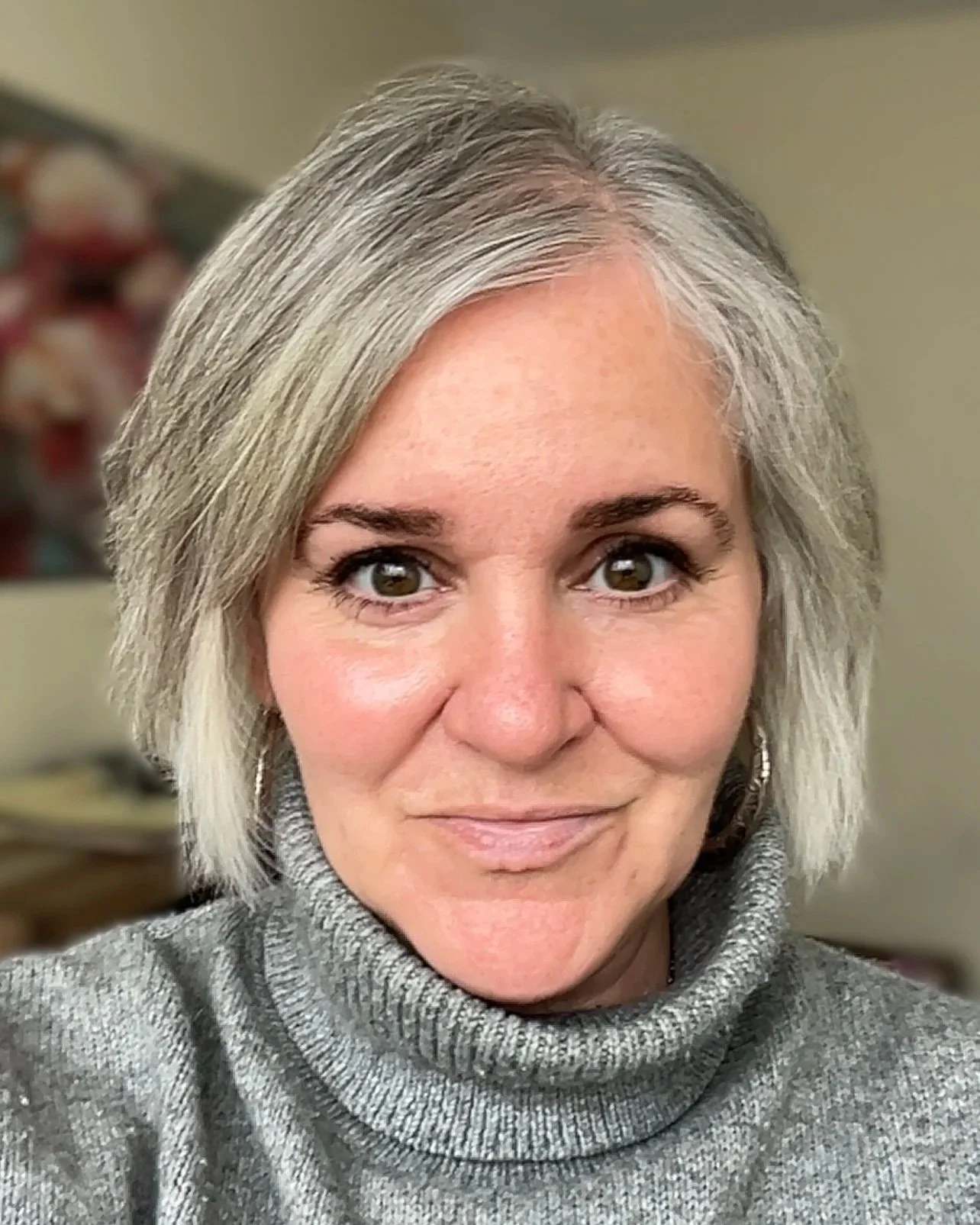Carmen Wilde
Healing Practitioner & Intuitive Guide
- Age 55
- Canada Calgary
- Nationality Canadian
- What defines her "The privilege of a lifetime is being who you are." - Carl Jung

Strategic Partners / Sponsors
Who is Carmen?
My name is Carmen Wilde. I am a healing practitioner living in Calgary, Canada and the single mother to 3 children. My middle son has special needs and my experience of parenting him has contributed greatly to my own spiritual/emotional growth.
I grew up in a home where I experienced ongoing narcissistic and sexual abuse over the span of my entire childhood. Liberating myself from unhealthy family dynamics and patterns allowed me to return to living from my most authentic expression. Supporting others do the same is a large part of what informs my practice with clients.
Professional Recommendation
Coming soon…
Goals
Carmen's Present and Future
Present: Currently, I have a great deal of confidence and faith in my skills as a practitioner and in the experience/wisdom I have cultivated over many years of study, education, and my own personal work. However, I lack the skills and know-how to create the infrastructure my business is needing and I require support in learning how to develop the platforms and structures needed in order to have a thriving online business as an entrepreneur.
Years of single parenting in addition to unravelling myself from unhealthy dynamics with both extended family and my former husband have contributed to exhaustion and overwhelm. Despite this, I trust that with the right support and with my own devotion and determination I will be able to put in place what is needed to grow my business and continue to serve and uplift people.
I have felt called to do this work my whole life - since I was a very young child - and continue to trust that call is leading me in the right direction.
Future: I desire to have a healthy thriving business as a healing practitioner that includes the opportunity to travel. I would like to own my own home as well as build financial stability to eventually pass on to my children. Given that I had my 3rd child at the age of 41 it is important to me to continue to build and maintain my physical health so that I can thrive and support my children as I age. I intend to keep working well into my 70s and 80s. (I don't believe retirement is particularly good for people and it is increasingly apparent that the world is in need of people who can continue to make an positive contribution to the upliftment of humanity.) Should the opportunity arise to enter into healthy loving relationship with a new partner I will welcome that but my current priority is my work and my children.
The HELP program consists of three phases:
Phase one, which lasts up to 12 months, is divided into 7 stages, where each Homeless Entrepreneur (HE) is assigned a coordinator and nine managers (covering the following areas: professional development, education, health, housing, finance, legal, communication, sales and general assistance).
The status meter below identifies the Homeless Entrepreneur’s current HELP program stage.
Click here to read more about our HELP Program, and understand its different phases and stages.
Housing
Stage 1: Homeless Homeless people living in public spaces, external spaces or night shelters. Stage 2: Houseless Homeless people living in homeless hostels, temporary accommation, transitional supported accomodation, women's shelter accomodation. Stage 3: Insecure Housing Homeless people temporarily living with family/friends, squatting, or under the threat of eviction or violence need to advance to stage 4 or 5 as quickly as possible Stage 4: Inadequate Housing Homeless people living in temporary/ un-conventional structures, unfit housing or extreme overcrowding need to advance to stage 5 as quickly as possible. Stage 5: Dignified Housing Have a safe, affordable and clean place to call home allows one to focus on building a future as a contributing member of society.Health
Stage 1: Disengaged & Overwhelmed Being disengaged, overwhelmed and exhausted is common for many homeless people due to the high level of stress and overall poverty being experienced. Stage 2: Becoming Aware but still Struggling Homeless individuals face difficulties with sleep, fatigue, and daily tasks, leading to stress and low self-esteem. Establishing a beneficial routine can be a challenge. Stage 3: Maintain Behaviors & Pushing Forward Homeless people find it hard to improve their health due to poor sleep, low self-esteem, and stress. They know they should establish healthy habits, but it's tough. Stage 4: Healthy Lifestyle Once this stage has been reached, the objective is to maintain it and mitigate the risk of entering homelessness again.Professional Development
Stage 1: Disengaged & Misinformed Poverty can isolate people from their community and vital information, causing division instead of unity. Stage 2: Motivated but Lacking Network Homeless individuals need community connection, accurate information, and a supportive network to stay motivated and continue personal and professional growth. Stage 3: Entering Workforce & Building Professional Skills Building a positive network can help homeless individuals find job opportunities and develop stronger professional skills. Stage 4: Discovering True Professional Potential Knowing your strengths and weaknesses helps you reach your full potential as a business professional and optimize your resources and time for a happier, healthier career.Training
Stage 1: Outdated Training Many skills that one has learned become obselete due to technological advances, which means that one must accept a new professional reality. Stage 2: Basic General Training Building basic general knowledge, skills and competences allow one to enter the desired professional sector for an entry level position or as an intern. Stage 3: Intermediate Sector-Specific Training Focused sector-specific training can lead to career growth within or outside an organization. Stage 4: Advanced Sector-Specific Training At this stage, the professional has proven he or she is competitive in his or her sector and has the opportunity to open doors for HEs in earlier stages.Communication
Presentation Skills To introduce oneself well, use clear structure, strong material, the right tone, and control body language. Negotiation Skills Learning how to communicate, persuade, plan, strategize and cooperate allows one to reach a compromise and attain her or his goals faster. Business Writing Skills Efficient business writing skills will allow one to provide relevant information in the right style, which is clear and easy-to-read, within the right context. Influencing Skills Positive behavior can influence others to change. Cross-Culture Communication Having a deep understanding of different cultures can help individuals integrate smoothly into society. Win-Win Conversation Conversations focused on all parties that are involved feeling good about the actions and desired outcomes help create new opportunities, growth & potential value. Selling Skills Being able to sell oneself and/or products and services help one get a job, keep it and evolve professionally. Teamwork Building Knowing everyone's strengths and weaknesses helps maximize group productivity by utilizing each person's unique abilities.Legal
Stage 1: Forgotten or Unattended Legal Issues Non-criminal legal problems like government benefit claims, evictions, child custody, and employee rights can impact civil liberties and often go unattended. Stage 2: Resolving Legal Issues With the right legal support, homeless people can afront these issues and resolve them in a timely manner so they can overcome unnecessary administrative roadblocks. Stage 3: Law Abiding Citizen Obeying the law means they are protected from it and can focus on developing other aspects of their life as contributing members of society.Finances
Accounting Skills Being in control of one’s financial health and being able to plan for the future allows one analyze investments, reach savings goals, control debt and focus on profitability. Financial Analysis Skills Understanding one’s financial performance allows one to track and analyze the past and present in order to create a clearer financial forecast. Forecasting Skills Being able to measure the accuracy of predicting one’s financial future allows one to plan ahead and be better prepared for financial ups and downs. Risk Management Skills Identifying potential causes of accidents or loss allows one to implement preventive measures, and devise plans to minimize costs and damage. Finance Reporting Skills Organized and concise financial data helps make better decisions for financial health. Financial Literacy Skills Understanding and effectively applying financial skills, i.e. personal financial management, budgeting and investing, allows one to be financially autonomous.HELP Progress Bar
Carmen’s Support Community
All of Carmen’s stakeholders play an important role in creating new sustainable opportunities that will inspire both individual and systemic change.
Her Stakeholder Community
City Halls
Neighbor communities
Health and intuitive professionals
Canadian people and Canadian institutions
Individuals and institutions that support poverty reduction and ending homelessness
Retired citizens
Professors and universities
Private Donors
Monthly donations will provide greater stability for Carmen.
